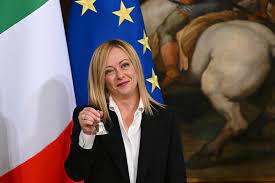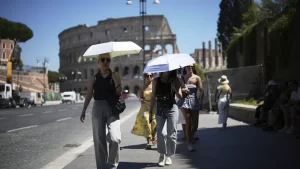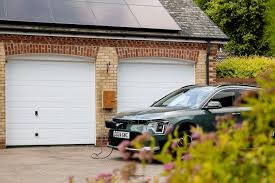Italy: PM Meloni to meet EU chiefs in Brussels next week

Rome: New Italian Prime Minister Giorgia Meloni will meet EU chiefs in Brussels next week, including European Commission President Ursula von der Leyen, both sides said.
It marks their first face-to-face talks since Meloni took office following the victory of her far-right, Eurosceptic party in general elections last month. Meloni will meet “heads of European institutions” on Thursday in the Belgian capital, her office said in a note. In Brussels, EU officials said she would hold talks with von der Leyen, European Council chief Charles Michel and European Parliament speaker Roberta Metsola.
Meloni had a telephone conversion with German Chancellor Olaf Scholz on Friday, in which they emphasised the “strong partnership” between their two countries, her office said. The Ukraine war dominated the discussion, with Meloni reiterating Italy’s commitment to Kyiv on the “political, military, economic and humanitarian fronts”, it said. They also discussed the energy crisis facing Europe, with Meloni emphasising the “urgency” of concrete measures to reduce sky-high prices, as well as migration and economic growth.
Meloni has already met French President Emmanuel Macron. They had an informal tete-a-tete on Sunday, during a trip to Rome he had planned well before she took the helm. Meloni’s government is the most right-wing to take office in Rome since World War II. Her post-fascist Brothers of Italy party once advocated Italy leaving the eurozone, although it has dropped this demand.
Meloni’s coalition also includes Matteo Salvini’s anti-immigration League party and former premier Silvio Berlusconi’s right-wing Forza Italia. The 45-year-old has said she will stand up more for Italy’s interests in the EU, which she sees more as a confederation of sovereign nations than a political union. However, in her first speech to parliament, Meloni took pains to emphasise that she saw Italy, the eurozone’s third largest economy, as “fully part of Europe”. She said her objective “is not to slow down or sabotage European integration”, but to make it more effective in dealing with crises.





